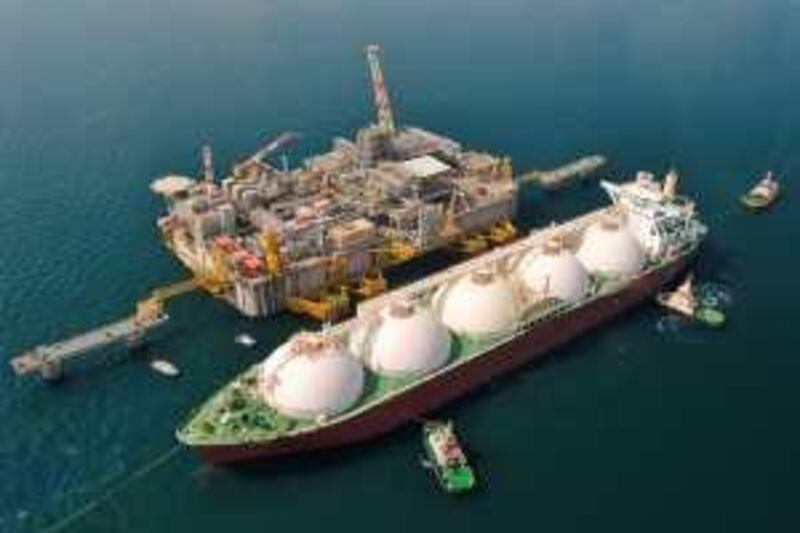Qatar has opened a new production facility for liquefied natural gas (LNG) in the emirate and also received the first shipment at a new terminal in the Adriatic Sea, helping to consolidate its position as the world's leading LNG exporter. The country is rapidly expanding its exploitation of the world's largest gas resource, known as the North Field, and expects to bring four new LNG plants into production this year, doubling its export capacity to 62 million tonnes a year.
Another two plants will be added next year, boosting Qatar's capacity to 77 million tonnes a year. Explaining why Qatar could expand its LNG exports even as demand has been hit by the global recession, the credit rating agency Fitch said: "Qatar is strategically located for deliveries to all major gas consuming regions." The start-up of Rasgas Train 6 coincided with the beginning of operations at an Italian LNG receiving terminal that is 90 per cent owned by the partners in Rasgas, Qatar Petroleum and ExxonMobil.
On Wednesday, the first LNG cargo arrived at the Adriatic LNG terminal, which sits on a concrete platform off the coast of southern Italy. ExxonMobil, which has contributed proprietary technology to both the Rasgas and Adriatic LNG ventures, said the Italian facility was unique, "the first offshore gravity-based structure in the world for unloading, storage and regasification of LNG". The massive concrete structure on the seabed houses two storage tanks for the supercooled liquid, a plant for restoring it to gaseous form, and facilities for mooring and unloading LNG tankers.
When the terminal reaches full capacity later this year, it will be able to deliver 775 million cubic feet per day of gas to the Italian mainland, supplying about 10 per cent of Italy's gas requirements. By locating the gas terminal offshore, the project's partners - which also include Edison of Italy - were able to avoid community protests over potential safety issues of the type that have plagued, and often derailed, projects to build LNG import terminals elsewhere in Europe and North America.
The project pushes forward plans by the EU to diversify Europe's energy supplies and reduce dependence on Russian gas, at the same time helping Qatar gain new customers for its most important export at a time when the world is glutted with LNG. Saad al Kaabi, the director of oil and gas ventures for Qatar Petroleum and the chairman of Adriatic LNG, said: "The Adriatic LNG terminal will further expand Qatar's global reach and provide a diverse and secure energy supply for Italy."
Rasgas is Qatar's second LNG venture after Qatargas. The two enterprises are both majority owned by Qatar Petroleum, the Qatari state oil and gas company, in partnership with major western energy companies. While other leading LNG exporters such as Indonesia, Algeria and Malaysia rely on an older generation of production facilities, Qatar has moved rapidly over the past few years to establish an efficiency and cost advantage with larger, more modern plants that can accommodate the biggest LNG tankers ever built.
Qatargas inaugurated the first of Qatar's new generation of production plants in April, and exported its first cargo from the facility to a recently built receiving terminal at Milford Haven, in Wales. The new production plants are each capable of producing 7.8 million tonnes of LNG a year. Neil Duffin, the president of ExxonMobil Development, a subsidiary of ExxonMobil, said: "Advanced technologies, strong project execution skills and economies of scale have reduced the cost of producing and transporting LNG, thereby extending our ability to bring LNG to more people around the world."
Qatar has the world's third- biggest gas reserves after Russia and Iran. Until this year, it mostly exported LNG to the Asia-Pacific @Email:tcarlisle@thenational.ae





